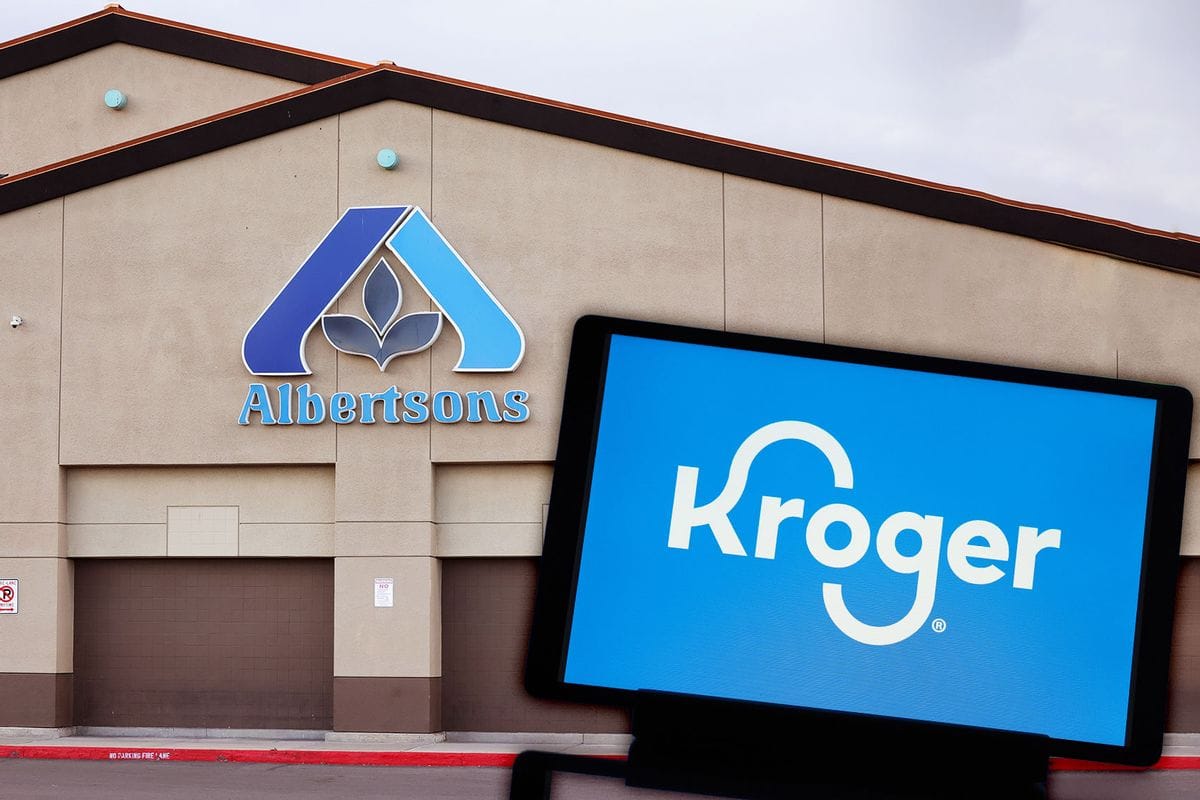In a significant development in the grocery retail sector, Albertsons Companies, one of the largest supermarket chains in the United States, has decided to abandon its proposed merger with fellow grocery giant Kroger. The decision comes as a result of what Albertsons claims are Kroger’s failures in securing the necessary agreements and approvals to finalize the merger. Following this decision, Albertsons has initiated legal proceedings against Kroger, alleging breach of contract and failure to meet merger-related obligations.
The merger, which was initially announced with great optimism, aimed to create a formidable entity in the U.S. grocery market, combining both companies’ extensive networks of stores, supply chains, and customer bases. The merger was expected to enhance competition, improve operational efficiencies, and provide consumers with a broader range of products and services. However, as the negotiations progressed, various challenges emerged, including regulatory scrutiny and internal disagreements.
According to Albertsons, the lawsuit stems from Kroger’s alleged failure to secure the necessary antitrust approvals from regulators, which was a key condition for the merger to proceed. Regulatory bodies, particularly the Federal Trade Commission (FTC), have been increasingly vigilant in monitoring mergers and acquisitions within the grocery sector, often citing concerns about market concentration and its potential effects on consumer prices and choices.
Albertsons’ lawsuit outlines specific claims against Kroger, asserting that the company did not act in good faith during the merger negotiations. The complaint highlights instances where Kroger allegedly failed to provide timely information and updates regarding the status of regulatory reviews and negotiations with relevant authorities. Albertsons contends that these actions hindered its ability to make informed decisions regarding the merger.
In response to the lawsuit, Kroger has stated that it is committed to resolving the matter amicably but maintains that it has acted in accordance with all agreements and regulations. The company expressed disappointment over Albertsons’ decision to pursue legal action, stating that it believed the merger could still be beneficial for both parties and their customers.
The fallout from this situation has raised questions about the future of both companies in a competitive grocery landscape. Kroger, which operates thousands of stores across the United States, has been focusing on enhancing its e-commerce capabilities and expanding its product offerings to meet the changing needs of consumers. Meanwhile, Albertsons, which operates under various banners including Safeway and Vons, has also been investing in technology and store upgrades to improve the shopping experience.
Industry analysts have noted that the failure of the merger could have significant implications for the grocery sector as a whole. With increasing competition from discount retailers and online grocery services, both Kroger and Albertsons must adapt to the evolving market dynamics. The lawsuit adds another layer of complexity, as both companies will need to navigate the legal proceedings while continuing to operate and compete in a challenging environment.
Experts suggest that the outcome of the lawsuit could set a precedent for future mergers and acquisitions in the grocery sector. As more companies look to consolidate in response to market pressures, the legal ramifications of this case could influence how such negotiations are conducted and how regulatory approvals are sought.
As the lawsuit progresses, both Albertsons and Kroger are likely to face scrutiny from consumers, investors, and regulatory bodies. The grocery industry is at a crossroads, with rapid changes in consumer preferences and shopping habits. The ability of these companies to adapt and innovate will be crucial in determining their future success.
In the aftermath of the merger’s collapse, Albertsons may need to reevaluate its strategic direction and consider alternative avenues for growth. This could involve exploring partnerships, investing in technology, or focusing on enhancing its existing store formats. On the other hand, Kroger may need to double down on its efforts to strengthen its market position and address any concerns raised by the failed merger negotiations.
The grocery retail sector is characterized by a high degree of competition and a constant push for efficiency and innovation. As both Kroger and Albertsons navigate this new chapter, their actions will be closely watched by industry stakeholders and consumers alike. The outcome of this legal battle could shape the future landscape of grocery retail in the United States, influencing the strategies and operations of not only the involved parties but also their competitors.
In conclusion, the decision by Albertsons to sue Kroger over the failed merger negotiations marks a pivotal moment in the grocery retail sector. As the legal proceedings unfold, the implications for both companies and the wider industry will be significant, potentially altering the dynamics of competition and collaboration in this essential market. Consumers and investors will be keenly observing how this situation develops and what it means for the future of grocery shopping in America.



